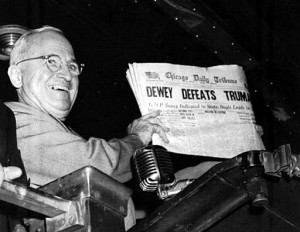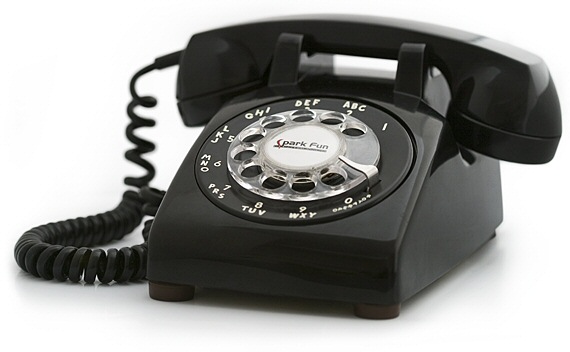
The problem, it was later revealed, was that the Gallup organization based its poll results on responses to telephone inquiries. But in the late 1940s, that selection inevitably favored wealthier Republicans, leading to skewed poll results.
Gallup is best known for that one half-century-old blunder. There’s a terrible irony in that. The studious George Gallup did more than anyone to put opinion polling on solid ground.
We have a similar problem today, it appears to me. While telephone subscribership has now become ubiquitous, increasingly many citizens — especially twenty-somethings — no longer use landline telephones, instead going completely wireless. The proportion was 1 in 6 three years ago and continues to increase steadily. Pollsters, however, still base their surveys on landline phone subscribers. In fact, under FCC regulations it is unlawful to telephone a wireless subscriber for a “solicitation” or using an autodialer (a technical prerequisite to modern polling) without either their consent or a prior business relationship. Therefore, despite a non-profit exemption in the FCC’s rules (which, unlike the Federal Trade Commission’s “telemarketing sales rule,” do not expressly exempt political polling), the law is standing in the way of accurate political predictions.
How this will play out in next Tuesday’s elections is unclear to me, as I claim no special expertise in political punditry. But it is revealing that the problems experienced in 1948 are recurring today in a different form due to technological change and the accelerating proliferation of wireless communications devices.


Pingback: Tweets that mention LexDigerati » Politics, Polls and Telephone Poles -- Topsy.com
I have been absent for a while, but now I remember why I used to love this website. Thanks, I will try and check back more frequently. How frequently you update your website?